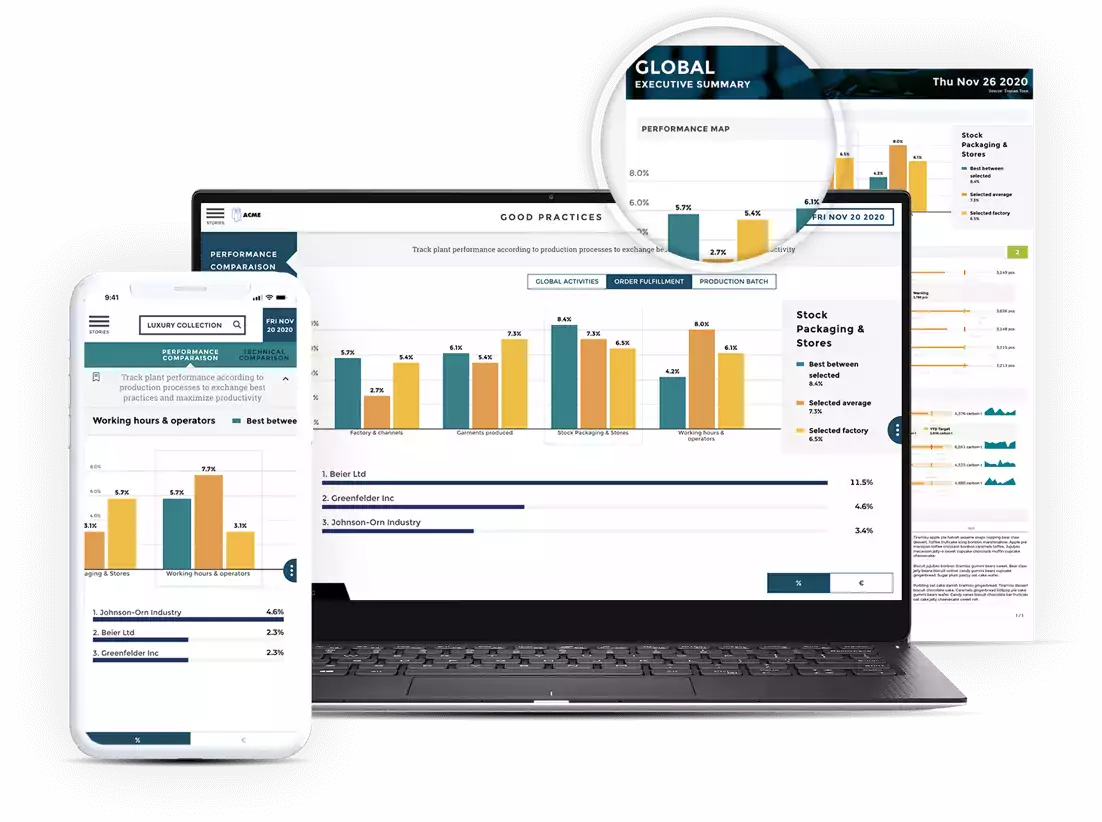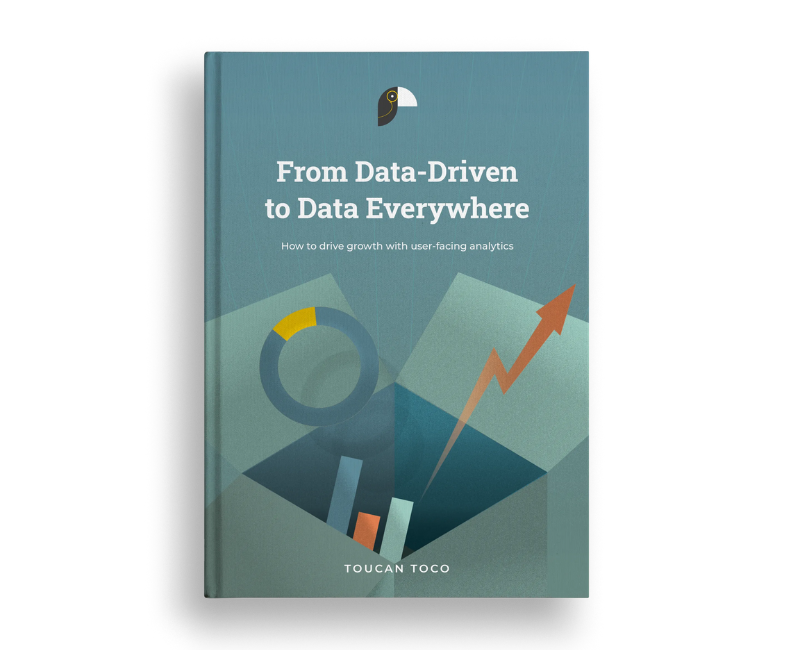Are your queries taking too long to execute? Are you struggling to process large datasets quickly enough to make timely decisions? If you need to fasten your analytics, you should start by looking at your database setup.
Let’s explore key factors that contribute to database speed. We’ll provide actionable solutions and introduce the top five analytics databases known for their rapid data processing capabilities. Let’s get started !

What makes a database “faster” than another
In the world of analytics databases, speed is paramount. But what exactly contributes to a database's ability to outpace another? Multiple elements combine to determine the overall performance of a database system. Understanding these can help you choose the right tool and optimize it for maximum efficiency.
Hardware and infrastructure
The underlying hardware on which a database runs can significantly impact its speed. High-performance CPUs, ample RAM, and fast SSDs can drastically reduce data processing times. Furthermore, databases hosted on cloud platforms can benefit from scalable resources, allowing performance to be dynamically adjusted to meet demand spikes without permanent investment in physical hardware.
Database design and architecture
The structure of a database- how it's designed and the model it follows- plays a critical role in its performance. Databases designed for specific types of data operations, such as columnar databases for analytics, can perform faster due to their ability to efficiently read and write data suited to their design. The complexity of the database schema and the degree of normalization can also affect transaction speeds and query responsiveness.
Effective indexing
Indexing is a powerful way to speed up data retrieval operations in a database. By creating a sort of "lookup table," indexes help the database engine quickly locate the data without scanning every row of a table, which becomes increasingly beneficial as data volume grows. Properly maintained indexes target frequently queried columns and are essential for accelerating searches, joins, and aggregations.
Query optimization
The way queries are written significantly impacts database performance. Optimizing SQL queries by choosing the right query clauses, utilizing joins efficiently, and avoiding unnecessary columns in the select statements can minimize the workload and enhance speed. Tools and techniques like explain plans can be used to analyze and refine queries to ensure they run as efficiently as possible.
Caching strategies
Caching is a technique that stores recently or frequently accessed data in rapidly accessible storage layers. This reduces the need to repeatedly query the database for the same data, thereby decreasing load times and improving response speed. Effective caching strategies anticipate the needs of users and pre-load data into the cache, which is particularly useful in read-heavy database environments.
The top 5 databases renowned for being fast
When it comes to processing large datasets at high speeds, certain databases stand out from the crowd. These are recognized not only for their performance but also for their ability to efficiently manage complex queries and large volumes of data. Let's dive into the top five databases renowned for their speed:
1. ClickHouse
ClickHouse excels in real-time query execution, making it a top choice for analytical processing. Originally designed by Yandex for log data analysis, it has a columnar storage format that allows it to perform queries hundreds of times faster than traditional relational databases.
- Strengths: Incredibly fast data ingestion rates, efficient compression to save on storage and IO, and capable of parallel processing across multiple nodes.
- Ideal use case: Best suited for analytical applications where high query speed and data volume are critical, such as in telecommunications and online advertising analytics.
2. Amazon Redshift
Amazon Redshift has made a name for itself in the data warehousing space thanks to its fully managed, petabyte-scale data warehouse service. It uses columnar storage and massively parallel processing (MPP) to efficiently analyze data across its compute nodes.
- Strengths: Seamless scalability, integration with AWS ecosystem, and automated backup and scaling features make it a hassle-free solution for enterprises.
- Ideal use case: Perfect for businesses that require quick insights from their large-scale data sets and are already integrated into the AWS infrastructure.
3. Google BigQuery
A leader in the serverless data warehouse category, Google BigQuery handles analytics over vast datasets with ease. It’s built on a scalable infrastructure that can dynamically adjust to changing load patterns, providing consistent performance.
- Strengths: Serverless, meaning there's no infrastructure to manage; you pay only for the data processed, and it seamlessly integrates with Google Cloud services.
- Ideal use case: Ideal for businesses looking for a hands-off analytics solution where they can query massive datasets without worrying about the underlying hardware.
4. Microsoft Azure Synapse Analytics
Azure Synapse Analytics combines big data and data warehousing into a unified analytics service that offers robust data integration, enterprise data warehousing, and big data analytics.
- Strengths: Offers real-time analytics capabilities, integrates seamlessly with other Azure services, and provides end-to-end data security and compliance.
- Ideal use case: Best for enterprises invested in the Microsoft ecosystem that need comprehensive analytics combined with powerful data management capabilities.
5. Snowflake
Snowflake is known for its unique architecture that separates compute from storage, enabling users to scale up or down without downtime. It supports multi-cloud environments, which is a significant advantage for businesses looking for flexibility and high availability.
- Strengths: Allows simultaneous data access to users without performance degradation, offers a wide array of data manipulation and transformation capabilities, and supports ANSI SQL.
- Ideal use case: Suitable for businesses that need a flexible, cloud-agnostic solution that can handle diverse data and large scales without compromising on performance.
6. Toucan: Analytics on top of your database
Toucan is a standout choice for businesses seeking a user-friendly platform that doesn’t sacrifice speed. Designed with ease of use in mind, it provides fast, efficient, and intuitive analytics across various data sources.
- Strengths: Exceptional user experience, quick setup and deployment, and responsive customer support.
- Ideal use case: Excellent for small to medium-sized businesses or departments within larger organizations that require quick, actionable insights without a steep learning curve.






